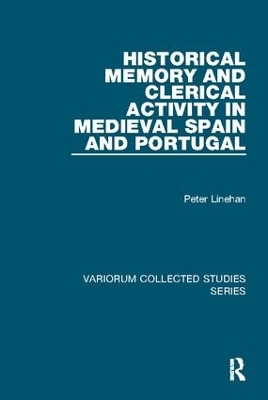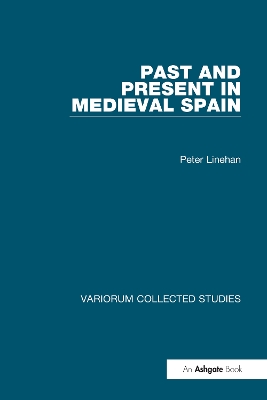Variorum Collected Studies
3 total works
Historical Memory and Clerical Activity in Medieval Spain and Portugal
by Peter Linehan
Published 19 July 2012
This fourth Variorum collection of articles by Peter Linehan comprises items largely from the past decade. The studies represent further investigation of themes broached in earlier works, in particular the latest report on the movements of Cardinal John of Abbeville, and the related subjects of historiography and historians, the interplay of history and government, and aspects of sacral monarchy. Articles on Zamora's frustrated legal history and Zamora's cardinal extend the Castilian theme across the territorial frontier into the kingdom of Portugal, and two other items explore English ramifications and developments in papal procedures.
CS184
The studies included in this selection - the opening two being published for the first time - are concerned with various aspects of the history of Christian Spain between the 6th century and the 14th. A recurrent theme is that of the invention of the past: of the manner in which, for reasons which have seemed good to them, at different times and places, from Toledo in the 1240s to Cambridge in the 1920s, men have sought to appropriate and recolonise that past. Three more technical articles on the subject of 13th-century papal diplomatic in a Spanish setting illustrate the related activity of the invention of the future as reflected in the activity of the agents or proctors and others whose services were retained in order to ensure that it was their employer's particular view of the present that prevailed. Les etudes comprises dans cette selection, dont deux paraissent ici pour la premiere fois, traitent des differents aspects de l'histoire de l'Espagne chretienne entre le 6e et le 14e siecle. Un theme frequent est celui de l'invention du passe: la faAon dont A differentes epoques et A differents endroits, de Tolede en 1240 A Cambridge en 1920, et pour des raisons qui lui semblent Atre les bonnes, l'Atre humain s'est efforce de s'approprier et de reconquerir le passe. Trois articles d'ordre plus techniques sur la diplomatique papale au 13e siecle dans un cadre espagnol, illustrent l'activite attenante qu'etait l'invention de l'avenir, telle qu'elle se traduisait au travers de l'action d'agents, de fondes de pouvoir et autres, dont les services etaient requis afin que la vision du present de leurs employeurs prevale.


